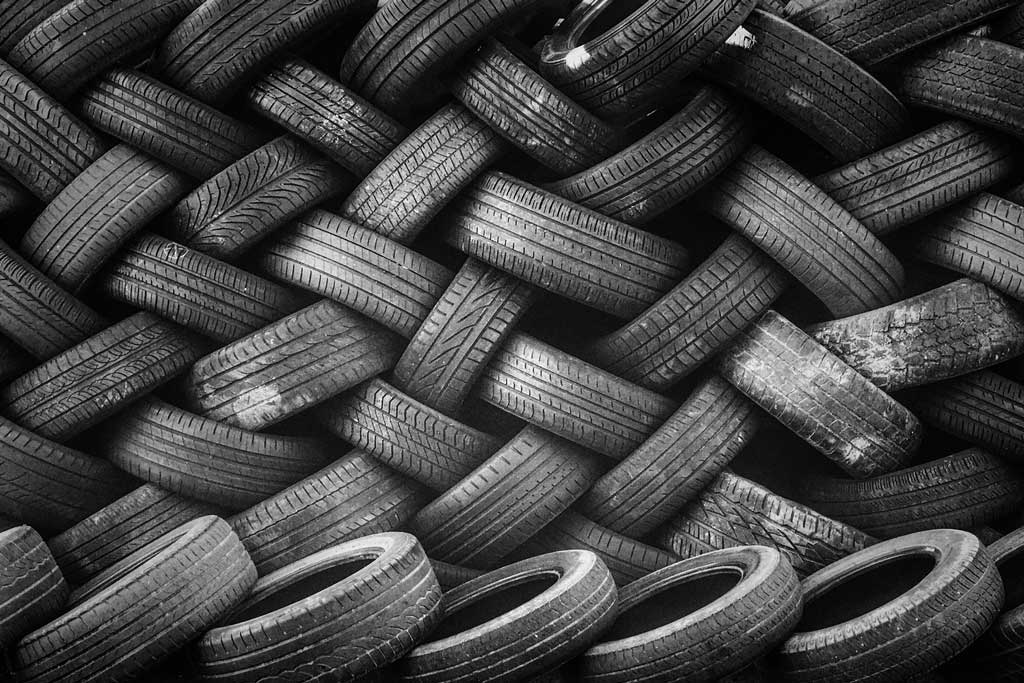
25 Feb Recycling used tires
Around 600,000 tonnes of waste tires are collected annually for disposal in Germany. The material supply has been stable for years and is regarded as valuable material. With a heat content of 9 KWh / kg, scrap tires are a better fuel than hard coal. When burning at a temperature of about 1000 ° C for energy, for example, to generate electricity or in rotary kilns for cement production, the heat is recovered without release of pollutants. However, carbon dioxide emissions are unavoidable.
Essential components of tires are rubber, carbon black, sulfur, zinc oxide, steel and nylon.
In material recycling, the used tires are ground into granules and used, for example, as soil material in sports facilities. During the pyrolysis, pyrolysis oil (38%), pyrolysis gas (20%), pyrolysis coke (30%) and scrap iron (12%) are expected as final products from the planned plant. Power generation is not required, which is important for the approval process.
The circle of suppliers of competent companies with certified production program in Germany for pyrolysis plants for the recycling of used tires leads to the conclusion that the technical prerequisites exist for the implementation of the project of a pyrolysis plant on the site of a waste tire disposal company in Germany.
The restrictive policy in Germany regarding the combustion of carbon and the release of carbon dioxide reinforces the trend towards material recycling from waste streams. Due to the high carbon content of tires, this applies particularly to the treatment and recycling of used tires. The previously preferred disposal of used tires by incineration or co-incineration in furnaces will not remain a viable way of disposal of used tires in the future. Thus, the processes for recycling gain great importance in waste management.
Even with changes in mobility concepts in Germany, the volume of used tires in the order of 600,000 t/a will not change significantly in the long term, so that a stable market for the recycling of recyclable waste can be expected. For the pyrolysis proves to be primarily suitable technique.
The legal situation for the construction and operation of waste incineration plants, which is not aimed at the incineration of carbonaceous waste, offers a high level of legal certainty with an unconditional right to authorization, provided that the requisite conditions required by the approval authorities are met by the applicant. Approved locations for waste collection points in industrial areas are ideal for logistical and licensing reasons for the implementation of waste tire pyrolysis plants.
The state of the art, which has been proven by competent, certified companies in Germany through references, offers a guarantee for the technical implementation of approved plant projects for the pyrolysis of old tires in a reasonable time frame. The number of bidders ensures that necessary supplies of supplies and services can compete so that market-driven prices can be expected.
Sorry, the comment form is closed at this time.